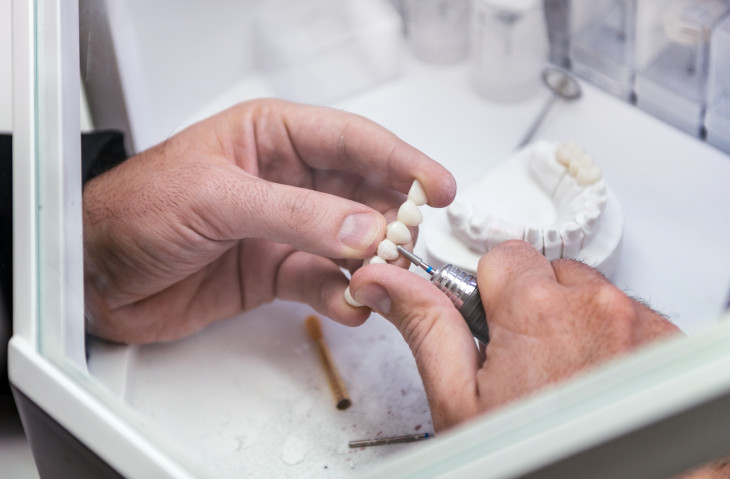Dentists typically work on patients of all ages. Licensure is required. Applicants must successfully pass a variety of practical and written exams after graduating from an accredited dental school.
Education & Training
Prior to applying for dental school, most students require a minimum of a bachelor's degree. Applicants must have completed specific classes in science including chemistry and biology. Majoring in a science such as biology may increase the chances of being accepted into dental school; however, no particular major is required.
Undergraduates who will be applying to dental school typically take the DAT or Dental Acceptance Test in their junior year. It can be extremely competitive to get into dental school. Testing along with recommendations and grade point average are often used to admit students.
Students study the following courses: radiology, anesthesia, periodontology and anatomy. Dental schools include student practicums where patients are treated in a clinical setting under the supervision of a licensed dentist. Those interested in pursuing this career should take the following in high school: anatomy, chemistry, mathematics, physics and biology.
Training
There are 9 dental specialties that require dentists to finish additional training prior to practicing within that specialty. Typically, a 1 or 2 year residency is required in a program related to their specialty. After dental school, general dentists do not require additional training. Those wishing to conduct research full time or teach often spend an additional 2 to 5 years in dental training. Numerous practicing dentists teach part time and may supervise during dental school clinics.
Licenses, Certifications, and Registrations
Dentists are required to be licensed. A degree from an accredited dental school and passing a practical and written exam is necessary. Those who wish to practice in one of the 9 specialty areas require a license in that specialty. Typically this requires 2 to 4 years of additional education after dental school. Completion of a local exam may be required in some areas. A postgraduate residency program is also required, which may be 2 years in length.
Skills and Qualities that will Help
Communication skills: Excellent communication skills are required by dentists in order to effectively communicate with patients, receptionists, dental assistants and dental hygienists.
Detail oriented: Dentists must be detail orientated to ensure patients undergo the correct treatments and are prescribed the right medications. The shape, color, and space of the teeth are important when it comes to matching restorations.
Dexterity: Dentists must be adept at working with their hands as they are dealing with confined space within the mouth.
Leadership skills: Most dentists have their own practice. This requires them to lead and manage a staff.
Organizational skills: Having great organizational skills will help keep track of patient care and records is essential for both business and medical settings.
Patience: Dentists commonly work for extended periods of time with individuals who require personal attention. Patients with dental phobia and small children may require plenty of patience.
Physical stamina: Dentists have to be comfortable performing physical tasks such as bending over patients for extended time.
Problem-solving skills: Dentists rely on strong problem-solving skills to evaluate patients' symptoms and determine the appropriate course of treatment.









